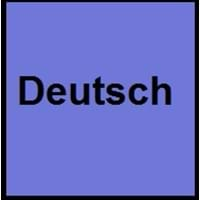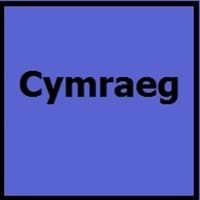Countries
Austria, Belgium, Germany, Italy, Liechtenstein, Luxembourg, Switzerland
Wales
National Language
Germany
Wales
Second Language
North Dakota, United States of America
Not spoken in any of the countries
Speaking Continents
Europe
Europe
Minority Language
Czech Republic, Denmark, Former Soviet Union, France, Hungary, Italy, Namibia, Poland, Romania, Slovakia, Slovenia
Argentina, United Kingdom
Regulated By
Council for German Orthography
Welsh Language Commissioner
Interesting Facts
- One of the large group of Indo-Germanic languages is German.
- The second most popular Germanic language spoken today behind English is German language.
- One of the Celtic language still spoken with great numbers of speakers is Welsh language.
- Welsh was evolved from British , which was spoken by ancient Britons.
Similar To
Dutch, Danish, Norwegian, Swedish and English Languages
English Language
Derived From
Albanian Languages
British Language
Alphabets in
German-Alphabets.jpg#200
Welsh-Alphabets.jpg#200
Writing Direction
Left-To-Right, Horizontal
Not Available
How Are You?
Wie geht es dir?
Sut ydych chi?
Good Night
gute Nacht
Nos da
Good Evening
guten Abend
Noswaith dda
Good Afternoon
guten Tag
P'nawn da
Good Morning
guten Morgen
Bore da
Please
bitte
os gwelwch yn dda
Sorry
Verzeihung
Mae'n ddrwg gennym
I Love You
Ich liebe dich
Dw i'n dy garu di
Excuse Me
Entschuldigung
Esgusodwch fi
Dialect 1
Swiss German
Patagonian Welsh
Where They Speak
Switzerland
Argentina
Dialect 2
Swabian German
Y Wyndodeg
Where They Speak
Germany
Gwynedd
How Many People Speak
Not Available
Dialect 3
Texas German
Y Bowyseg
Where They Speak
Texas
Powys
How Many People Speak
Not Available
Speaking Population
Not Available
Second Language Speakers
Not Available
Native Name
Deutsch
Cymraeg / Y Gymraeg
Alternative Names
Deutsch, Tedesco
Cymraeg
French Name
allemand
gallois
German Name
Deutsch
Kymrisch
Pronunciation
[ˈdɔʏtʃ]
[kəmˈrɑːɨɡ]
Ethnicity
Germans
Welsh people
Origin
6th Century AD
9th Century
Language Family
Indo-European Family
Indo-European Family
Early Forms
No early forms
Common Brittonic, Old Welsh, Middle Welsh
Standard Forms
German Standard German, Swiss Standard German and Austrian Standard German
Welsh
Language Position
Not Available
Signed Forms
Signed German
Not Available
Scope
Individual
Individual
ISO 639 6
deus
Not Available
Glottocode
high1287, uppe1397
wels1247
Linguasphere
52-ACB–dl & -dm
50-ABA
Language Type
Living
Historical
Language Linguistic Typology
Subject-Object-Verb, Subject-Verb-Object
Verb-Subject-Object
Language Morphological Typology
Fusional, Synthetic
Fusional
All German and Welsh Dialects
Most languages have dialects where each dialect differ from other dialect with respect to grammar and vocabulary. Here you will get to know all German and Welsh dialects. Various dialects of German and Welsh language differ in their pronunciations and words. Dialects of German are spoken in different German Speaking Countries whereas Welsh Dialects are spoken in different Welsh speaking countries. Also the number of people speaking German vs Welsh Dialects varies from few thousands to many millions. Some of the German dialects include: Swiss German, Swabian German. Welsh dialects include: Patagonian Welsh , Y Wyndodeg. Also learn about dialects in South American Languages and North American Languages.
German and Welsh Speaking population
German and Welsh speaking population is one of the factors based on which German and Welsh languages can be compared. The total count of German and Welsh Speaking population in percentage is also given. The percentage of people speaking German language is 1.39 % whereas the percentage of people speaking Welsh language is Not Available. When we compare the speaking population of any two languages we get to know which of two languages is more popular. Find more details about how many people speak German and Welsh on German vs Welsh where you will get native speakers, speaking population in percentage and native names.
German and Welsh Language Codes
German and Welsh language codes are used in those applications where using language names are tedious. German and Welsh Language Codes include all the international language codes, glottocodes and linguasphere.





